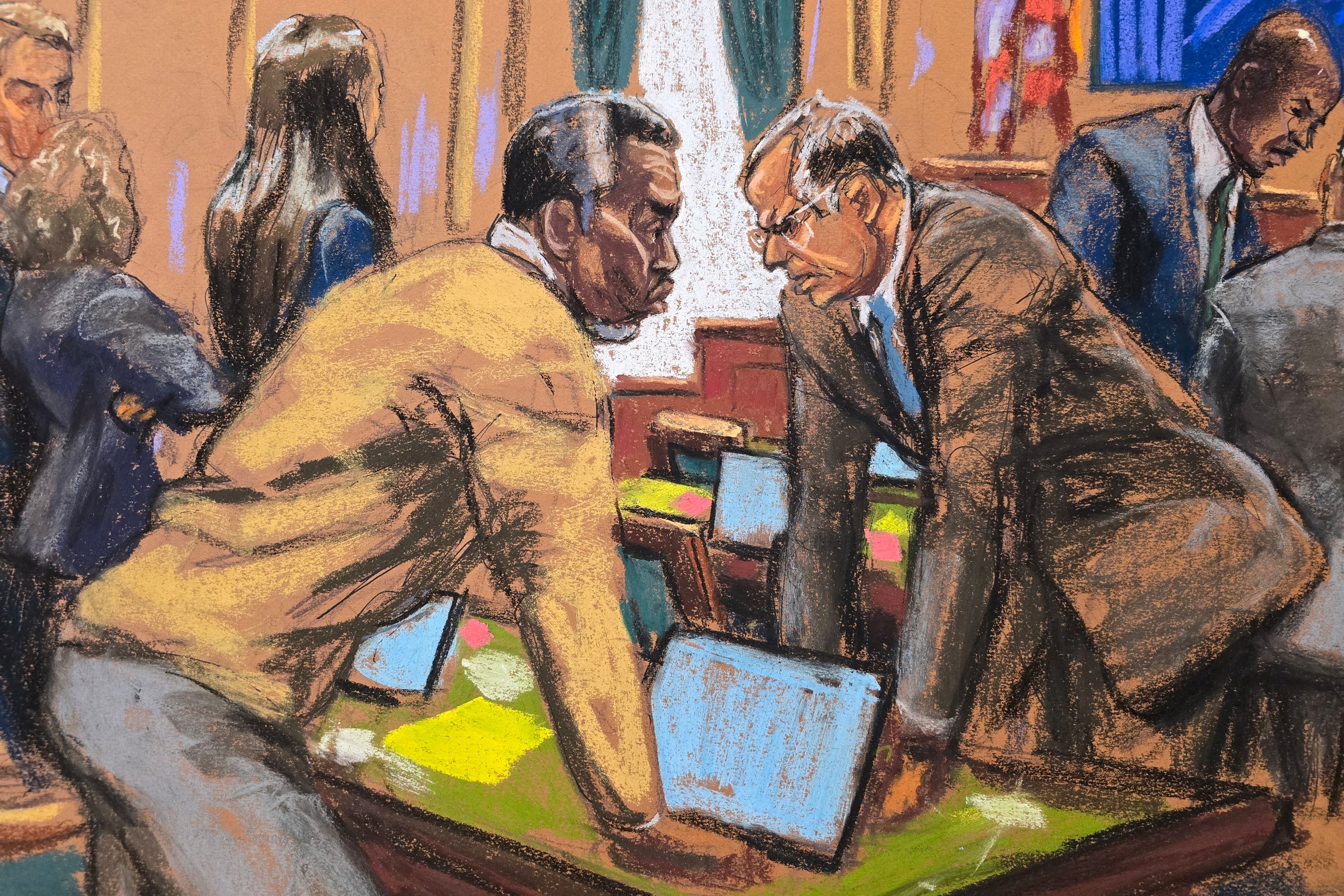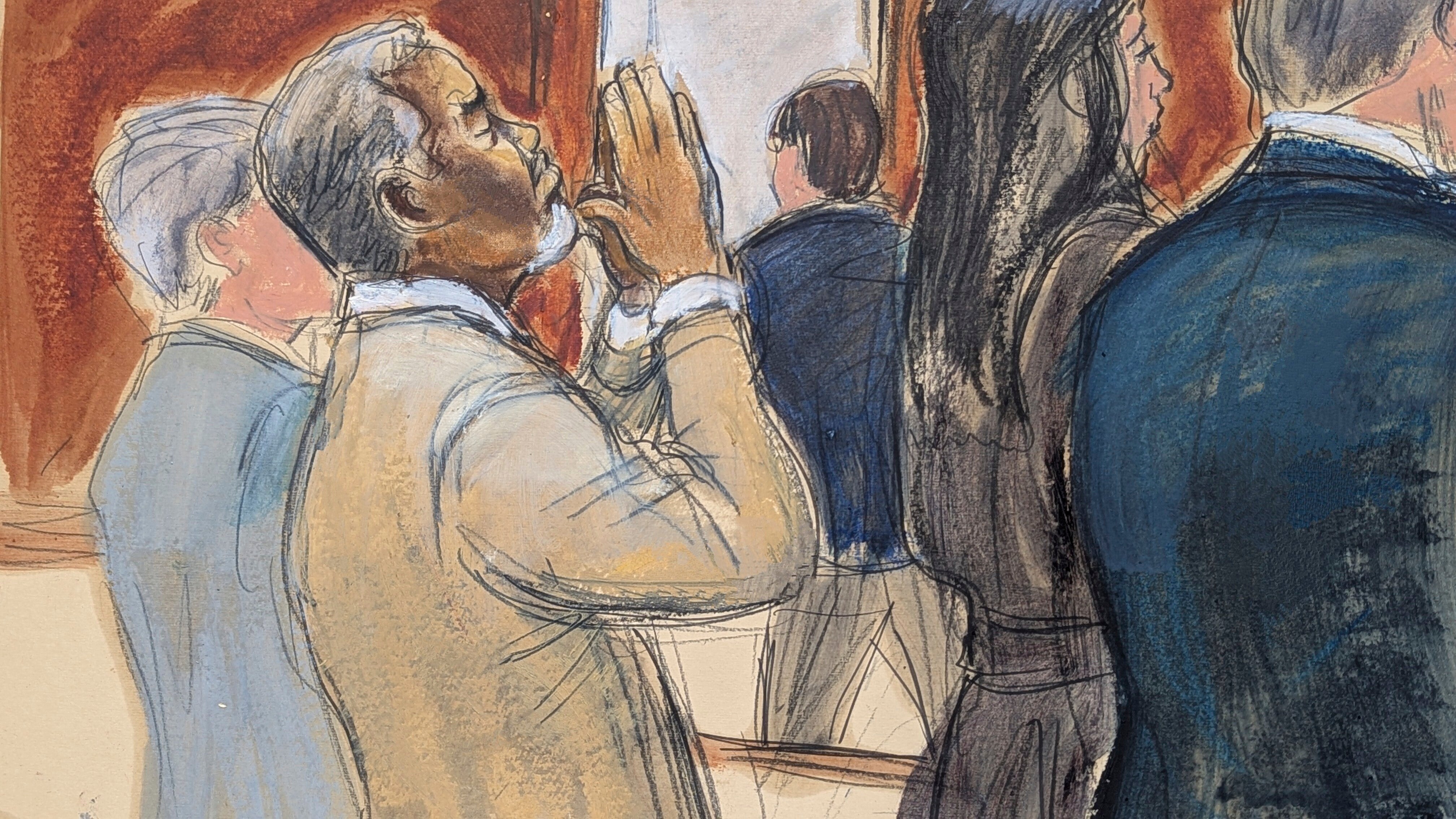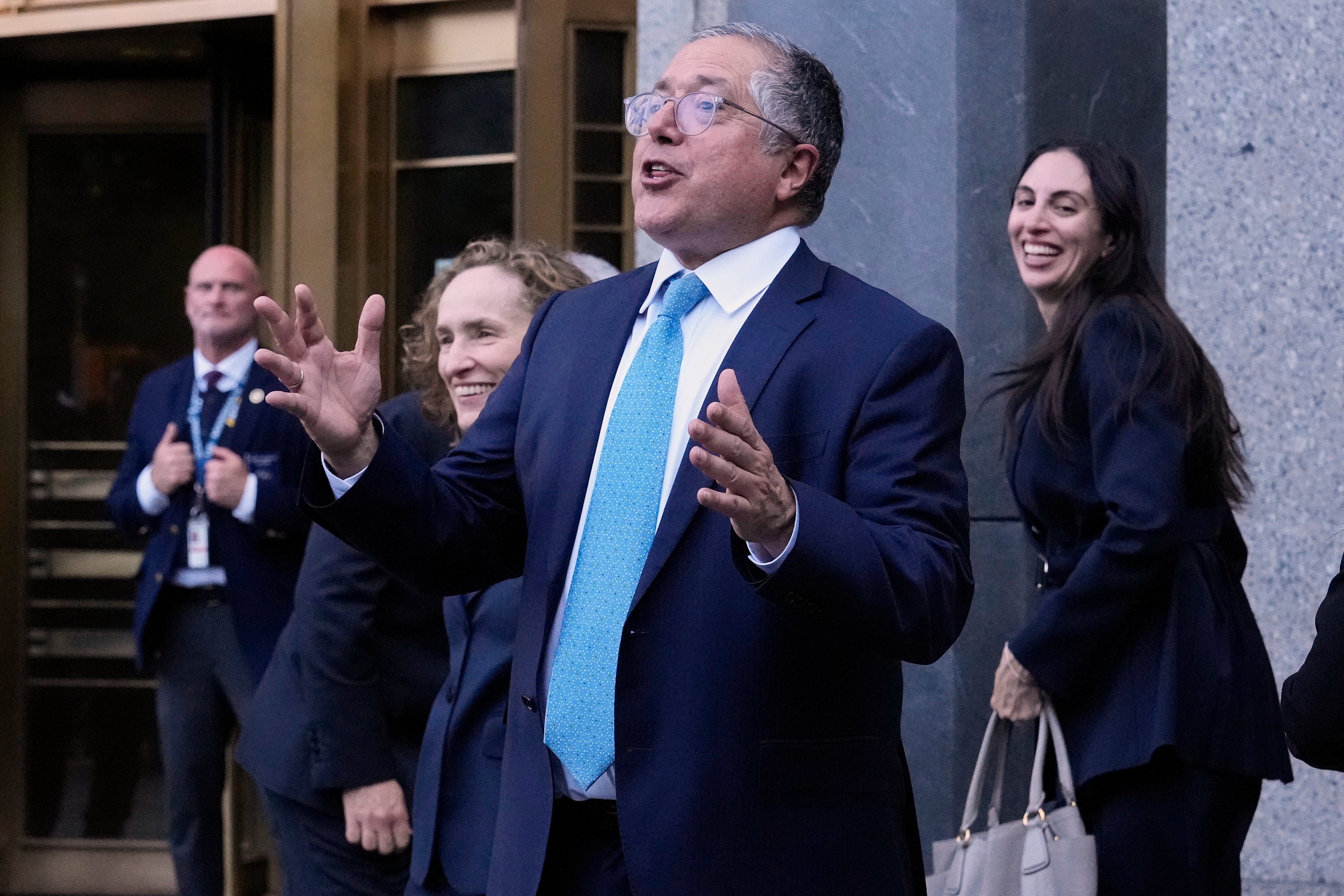Sean ‘Diddy’ Combs got a standing ovation from inmates after acquittal on some charges, lawyer claims

Sean “Diddy” Combs got a standing ovation from fellow inmates upon his return to jail after winning acquittals on potential life-in-prison charges, according to his lawyer.
Combs, 55, remains jailed after his Wednesday conviction on prostitution-related charges and could still face several years in prison at an upcoming sentencing after being credited for 10 months already served.
He was, however, found not guilty on the more serious counts of sex trafficking and racketeering conspiracy.
In an interview over the weekend, Diddy’s attorney Marc Agnifilo claimed the verdict might have been the best thing he could have done for Black incarcerated men in America.
“They all said: ‘We never get to see anyone who beats the government,’” Agnifilo said.

After federal agents raided his homes in Los Angeles and Miami in March 2024, the lawyer said he told Combs to expect arrest on sex trafficking charges.
“I said: ‘Maybe it’s your fate in life to be the guy who wins,’” he recalled during a telephone interview briefly interrupted by a jailhouse call from Combs. “They need to see that someone can win. I think he took that to heart.”
Despite celebrating the verdict now, Combs and his lawyers seemed deflated Tuesday when jurors said they were deadlocked on the racketeering count but reached a verdict on sex trafficking and lesser prostitution-related charges. A judge ordered them back to deliberate Wednesday.
“No one knows what to think,” Agnifilo said. Then he slept on it.
“I wake up at three in the morning and I text Teny [Geragos, his colleague] and say: ‘We have to get a bail application together,’” he recalled. “It’s going to be a good verdict for us but I think he went down on the prostitution counts so let’s try to get him out.”
He said he “kind of whipped everybody into feeling better” after concluding jurors would have convicted him of racketeering if they had convicted him of sex trafficking because trafficking was an alleged component of racketeering.
Agnifilo met with Combs before court and Combs entered the courtroom rejuvenated. Smiling, the onetime Catholic schoolboy prayed with family. In less than an hour, the jury matched Agnifilo’s prediction.
The seemingly chastened Combs mouthed “thank you” to jurors and smiled as family and supporters applauded. After he was escorted from the room, spectators cheered the defense team, a few chanting: “Dream Team! Dream Team!” Several lawyers, including Geragos, cried.

“This was a major victory for the defense and a major loss for the prosecution,” said Mitchell Epner, a lawyer who worked with Agnifilo as a federal prosecutor in New Jersey over two decades ago. He credited “a dream team of defense lawyers” against prosecutors who almost always win.
Agnifilo showcased what would become his trial strategy — belittling the charges and mocking the investigation that led to them — last September in arguing unsuccessfully for bail. The case against Combs was what happens when the “federal government comes into our bedrooms,” he said.
During an eight-week trial, Combs’ lawyers picked apart the prosecution case with mostly gentle but firm cross-examinations. Combs never testified and his lawyers called no witnesses.
Sarah Krissoff, a federal prosecutor in Manhattan from 2008 to 2021, said Combs’ defense team “had a narrative from the beginning and they did all of it without putting on any witnesses. That’s masterful.”
Ironically, Agnifilo expanded the use of racketeering laws as a federal prosecutor on an organized crime task force in New Jersey two decades ago, using them often to indict street gangs in violence-torn cities.
“I knew the weak points in the statute,” he said. “The statute is very mechanical. If you know how the car works, you know where the fail points are.”
He said prosecutors had “dozens of fail points.”
“They didn’t have a conspiracy, they just didn’t,” he said. “They basically had Combs’ personal life and tried to build racketeering around personal assistants.”
Some personal assistants, even after viewing videos of Combs beating his longtime girlfriend, Casandra “Cassie” Ventura, had glowing things to say about Combs on cross examination.

For Combs, Agnifilo sees a long road ahead once he is freed as he works on personal demons, likely re-entering a program for domestic batterers that he had just started before his arrest.
“He’s doing OK,” said Agnifilo, who speaks with him four or five times daily.
He said Combs genuinely desires improvement and “realizes he has flaws like everyone else that he never worked on.”
“He burns hot in all matters. I think what he has come to see is that he has these flaws and there’s no amount of fame and no amount of fortune that can erase them,” he said. “You can’t cover them up.”




